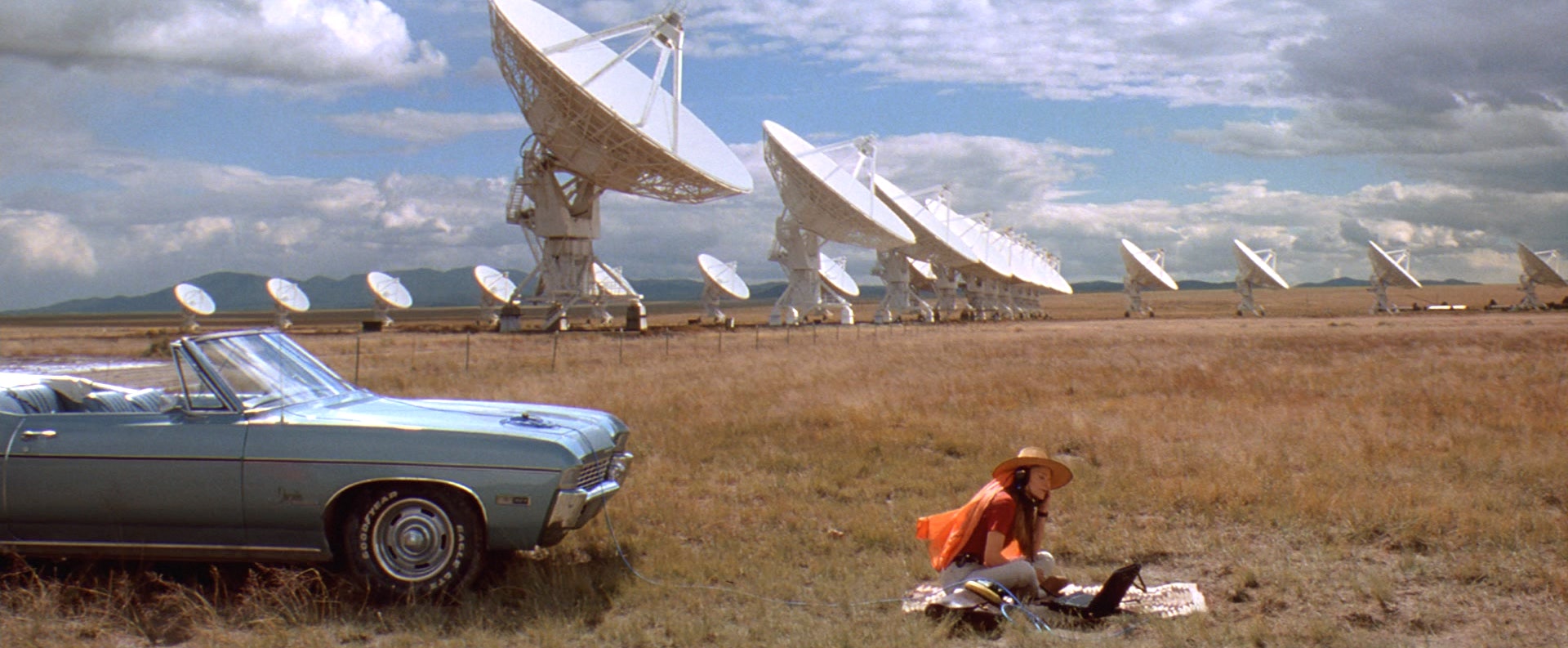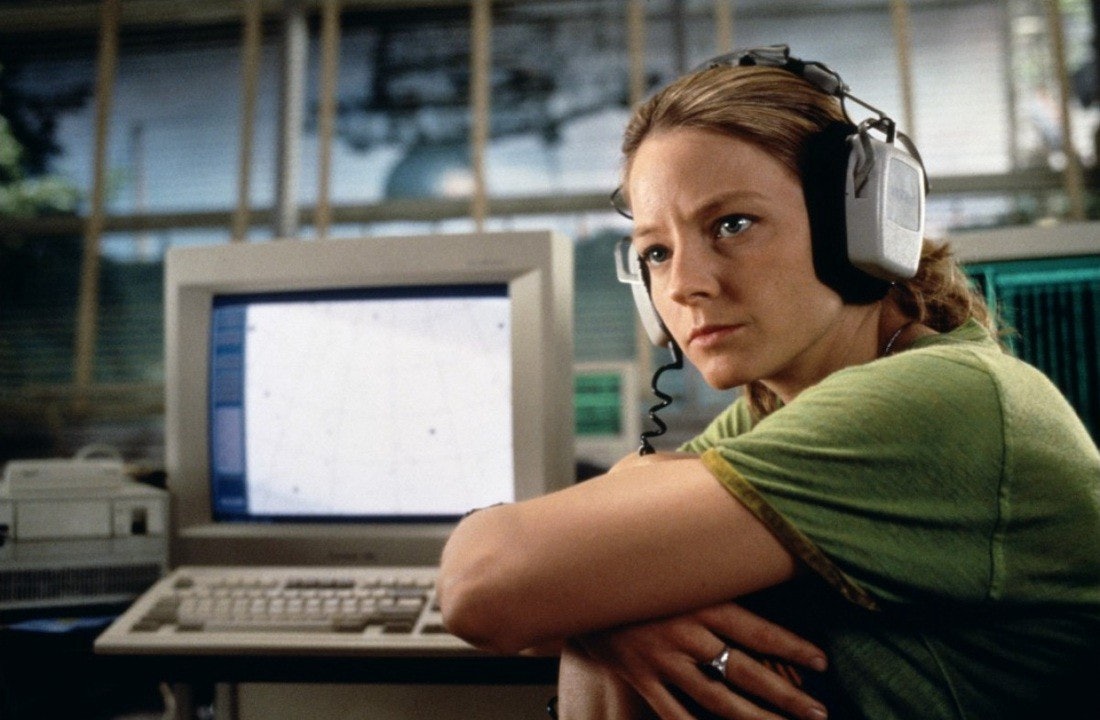
Are we alone in the universe? In his 1997 film, Contact, Robert Zemeckis ponders this very question. Based on a story by renowned astronomer Carl Sagan and Cosmos co-writer Ann Druyan, the film centers around Dr. Eleanor “Ellie” Arroway, a researcher at SETI (Search for Extraterrestrial Intelligence), as she attempts to prove the existence of alien life. She discovers a transmission coming from the distant star system Vega, leading many to try deciphering what the message means for the future of humanity. What ensues is an emotional journey in search of truth and meaning at the collision of faith and science.
Zemeckis wonders what would happen if extraterrestrials made their presence known, but instead of focusing on the aliens, he concerns himself with the conflicts among the people back on Earth. He builds a realistic depiction of the world reacting to a discovery of this magnitude.
In one scene, Ellie passes by groups of people protesting against her research. They consider it a defiant act against God. Others celebrate their potential neighbors. There are disagreements on what to make of the encounter, how to react to the unknown, and who should represent humanity when the time comes. Through this conflict, Contact raises questions about the relationship and compatibility between science and religion, along with the influence of media and technology in modern society.
Contact is also a landmark film in its portrayal of a woman scientist. At the time, few science fiction movies featured prominent women, let alone one in the lead role. Most of these characters fell into specific archetypes and would often not be involved with advancing the story or contributing to the solution. When they did participate in the plot, they often played the villain like in Indiana Jones and the Last Crusade, using their intelligence and attractiveness to deceive the male protagonist. Although Sigourney Weaver in the Alien franchise and Linda Hamilton from the Terminator films were the most iconic and respected, they also became mere gun-toting action heroes.

Zemeckis has also been guilty of letting down his female characters, however. In the 1994 film Forrest Gump, Jenny lives a countercultural lifestyle filled with promiscuity, drug use, and anti-war rallies. Eric Roth’s screenplay, which was based on a novel, pushed all of Forrest’s flaws onto Jenny’s character, painting her eventual death as punishment for partaking in the vices and divisive politics that defined the decade.
In contrast, Ellie is a fully realized character in Contact compared to her predecessors. She is intelligent, ambitious, stubborn, and unapologetic. Throughout the film, she has intellectual arguments with Palmer Joss (Matthew McConaughey) about the existence of God and the pursuit of big-t “Truth.” She also fights against the men who dismiss her work as a waste of time. Her grant money is constantly under threat by her superior, Dr. David Drumlin (Tom Skerritt).
Men question, ignore, and overrule her at every opportunity. Thankfully, Contact doesn’t go the easy route and make Ellie an unfeeling punching bag that brushes off every hit without complaint. Instead, we’re made to empathize with a woman who occasionally feels lonely, vulnerable, and frustrated — even more so as the obstacles stack up.

Ellie is not only isolated as a professional but also in her personal life. Her fascination with aliens stems from her early feelings of loneliness. As a kid, she asked her father if they could reach her deceased mother using her ham radio. Then she’s orphaned as a teenager following a great tragedy. So we see her curl up into a ball with her knees pressed up against her chest as she tries to keep it all together. Ellie’s quest to end that feeling of loneliness parallels the film's bigger-picture attempts to discover meaning in a seemingly random universe. She seeks reassurance in the confirmation that humans are not alone, and so she pushes herself to a near-obsessive degree.
By meshing Ellie’s personal arc with her attempts to find extraterrestrial life, Zemeckis realizes the truth behind his character without losing her personality and autonomy. Contact is a progressive depiction of a female protagonist exploring themes that science fiction films today continue to struggle with.
Ellie is a scientist who believes in a provable reality backed up by data, but she also has a desire to discover alien life so she can prove the existence of something greater than herself. She delivers a complex blend of unwavering logic and hopeful idealism, and we feel her elation upon each success and disappointment at every failure. When Ellie discovers the alien transmission despite astronomical odds, Contact captures her sense of wonder in the face of the universe’s vastness and our preciousness within it.
Ultimately, Contact is a thoughtful meditation on what it means to be alive in a vast universe, but it’s grounded in a relatable protagonist that you root for.







